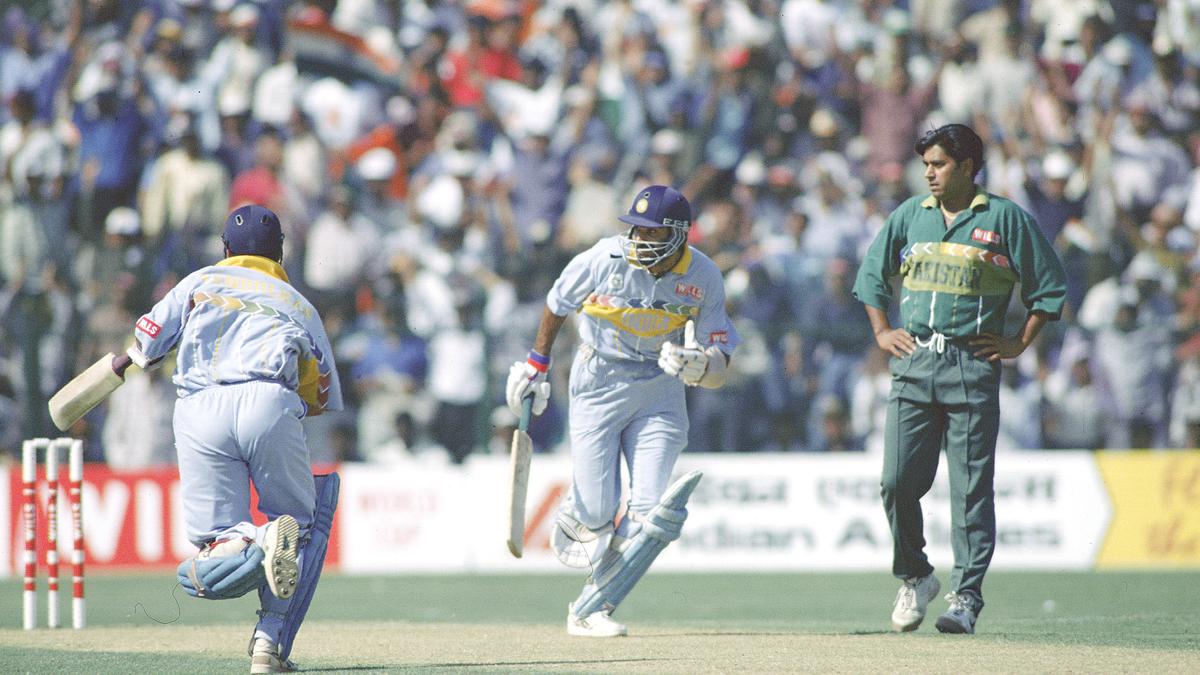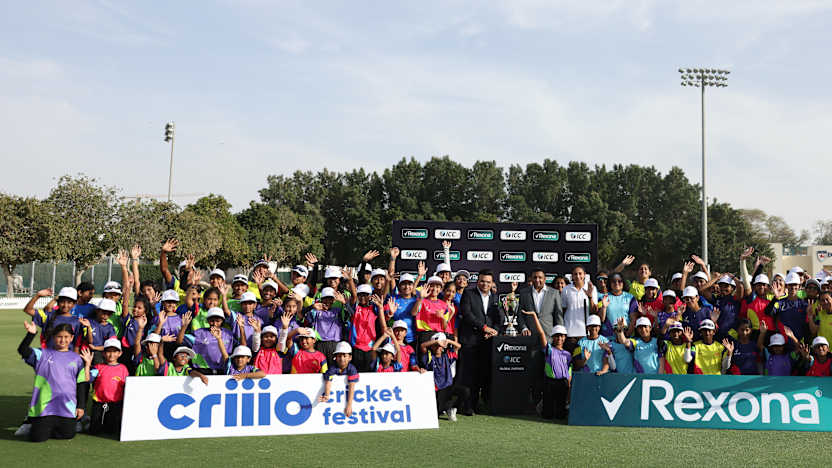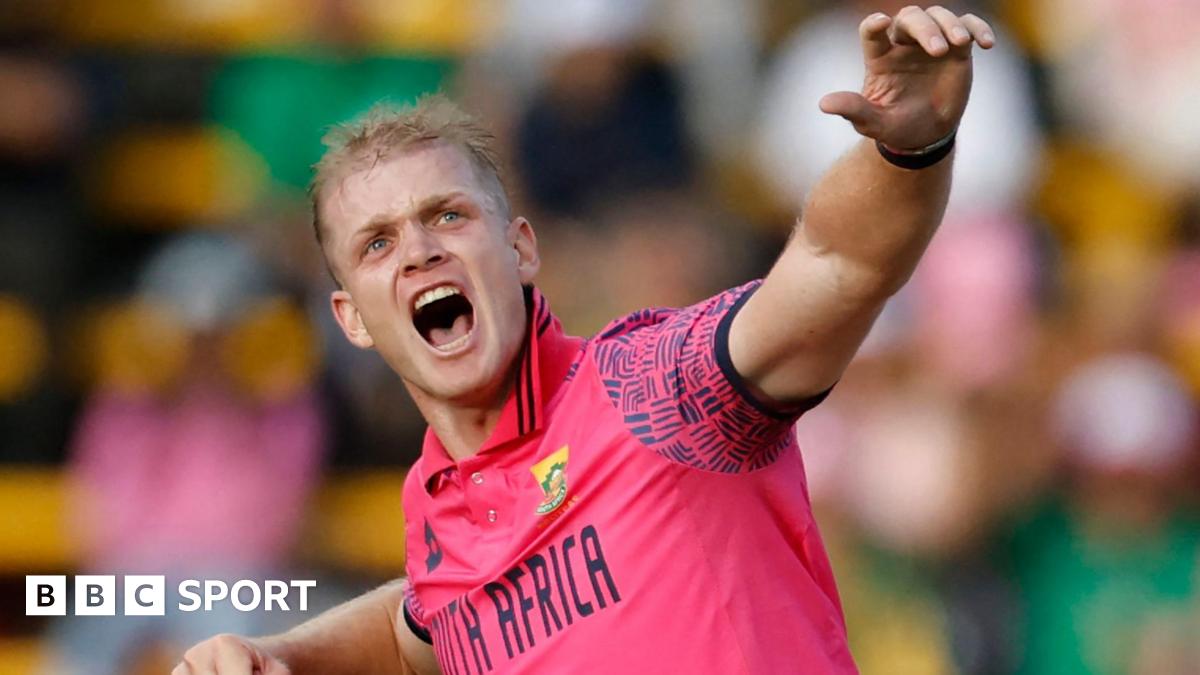Should India continue to boycott cricket in Pakistan?

Last Saturday, the Board of Control for Cricket in India (BCCI) officially communicated to the International Cricket Council (ICC) its decision to not send a team for the 2025 ICC Champions Trophy to be held in Pakistan from February 19 to March 9. Global cricket is returning to Pakistan for the first time in nearly three decades, and the nation had hoped that India would make the trip across the border. But despite being assured of foolproof security and given a choice of venues, as well as the slight goodwill generated from External Affairs Minister S. Jaishankar’s journey to Islamabad last month for the Shanghai Cooperation Organisation’s Council of Heads of Government meeting, India has decided not to travel. The BCCI prefers a hybrid model under which India will play all its matches outside Pakistan, an idea that the host is firmly against. Should India continue to boycott cricket in Pakistan? Sharda Ugra and Sunil Yajaman discuss the question in a conversation moderated by N. Sudarshan. Edited excerpts:
Should India have travelled to Pakistan for the Champions Trophy, especially given that Pakistan visited India for the World Cup in 2023?
Sharda Ugra: It would have been great if the gesture was reciprocated, but ‘India versus Pakistan’ is rarely about sporting logic or fairness. Political events overtake even the best of intentions. The cricketing ties between the two countries are fractured and the Indian cricket establishment treated Pakistan in a hostile manner at the 2023 World Cup. But even if all these [incidents] had not been there, political events have always caught up, and that is what has happened.
Sunil Yajaman: Probably they [Indian team] should have tried [to go to Pakistan], especially since Pakistan travelled to India. Somewhere we have to keep some ties going and sport has to be above politics. But if it is a security issue, I would not comment on that. India is ready to play Pakistan elsewhere, right? At a neutral venue? Pakistan also came here. So it is definitely not about not wanting to have sporting ties.
Pakistan did not host any international cricket for 10 years after the terrorist attack on the Sri Lankan team in 2009. But since then, Australia, England, Sri Lanka, New Zealand have all visited Pakistan. Is India justified in seeking an exemption?
Sunil Yajaman: I don’t know in what context India has refused to travel [to Pakistan]. If it is just about security, it is best left to the two governments. But otherwise, sports should go on. India even played the Davis Cup in Pakistan early this year [February] after 60 years. These are contests between the two countries, yes, but within the realm of sports. In all fairness, we should have nothing to do with politics.
It would be unfair to compare India’s relationship with Pakistan with the ties other countries have with the country. But somewhere, we could have tried. There was a lot of scepticism ahead of the Davis Cup too. But ultimately, it went off well.
Sharda Ugra: Concerns about security are fair if the BCCI had dealt with all the other issues in a calm and logical manner. But I am afraid we are beyond that stage of talking. What is missing in this space is actually the Indian cricket board’s ability to deal with the Pakistan cricket board in the spirit of fraternity and wanting the best for cricket. You can’t help it if politics catches up, but it is a sense of fellow feeling that is absent. It is a position that India cannot bring itself to take for reasons beyond cricket.
India co-hosted the 1996 World Cup with Pakistan and Sri Lanka and the final was played in Lahore…
Sharda Ugra: Yes. In 1996, a joint India-Pakistan XI played a match [ahead of the World Cup]. It was not like there were no wars, no hostility, and no political pressure before. That sense of belonging to the same space has disappeared. It feels like they [Indian cricket establishment] are bigger than that and their money is bigger than that.
India travelled to Pakistan for the Davis Cup (tennis), and Pakistan came to India for the SAFF Cup (football) last year. Is it fair for different sports to have different rules?
Sunil Yajaman: All the other teams, be it tennis or blind cricket, are going [to Pakistan]. I accept that for cricketers to travel is different: they are bigger international stars and the stakes are higher. So, possibly, there is security fear. But I feel that the sentiment should be the same towards all sports.
Sharda Ugra: Cricket has become emotional currency in both countries. In India, it is amplified — how we present the sport, talk about it, look at it on TV, and also how it is commentated on. Why will they [cricket establishment] dial down on that if it fetches TRPs and ad revenue?
It is hypocritical to see other teams travelling across the border. But look at the environment that has been built around ‘India versus Pakistan’. It has been made impossible to treat cricket as a sport.
Is it possible to not let geopolitical tensions percolate into the sporting arena? And when they do, to what extent can you limit it?
Sharda Ugra: It is not in our power to allow or disallow this. We have to accept it, simply because of the two countries’ history. The only way it can get better is if you disconnect cricket from hyper nationalism, but how is that going to happen if it is the biggest sport in both countries?
About this hybrid model that is being spoken about… I feel it is a great idea. Obviously, Pakistan is agitated, but nobody is saying ‘let’s find a way to play’. At one point, we had Saurav Ganguly and Ramiz Raja, two Test captains, heading their cricket boards, but we didn’t hear of any attempt to at least find a neutral ground and play. That is sad.
Mr. Yajaman, how was your experience travelling to Pakistan for the Davis Cup?
Sunil Yajaman: We were welcomed and Pakistan went out of its way to ensure that we were safe and comfortable. Hats off to them. For me, it was the second time in Pakistan. The first was in 2008 for two weeks of the ITF women’s tournament. When we were there, the Mumbai terror attacks happened. But we never felt any threat. In fact, people were quite sympathetic. I am talking about the general public and those in the tennis circles. So, this time, when we had to travel to Islamabad, I was absolutely fine because I know that the people are nice there. The security we got was unprecedented. They announced that we were like State guests. One of the main reasons Pakistan did that was to convey to India, ‘We can take care of you. Please come and play here’. They were so happy. Outside the tennis courts, players such as Aisam-ul-Haq Qureshi and our players are great friends.
Do you feel the athletes, despite the camaraderie, are no longer stakeholders in this grand saga?
Sunil Yajaman: The players will feel that loss of camaraderie. They would love to go to each others’ countries and spend time outside the field and have some fun. Players like Virat Kohli and M.S. Dhoni… Everybody in Pakistan talks about them. They are probably as popular as the Pakistan players.
Moving forward, it would be good for the two countries [to restart ties] in music, sports, and arts. But I would re-emphasise that if the government feels there is a security threat, then it is different. But it will be great to continue sporting ties. Will India not travelling to Pakistan help that?
In a fantastic co-incidence, the Indian men’s team has met Pakistan in every Champions Trophy, World T20, and ODI World Cup from 2013. The tie is a major money-spinner for ICC. In a scenario where the global custodian of the sport has a genuine financial interest in an India-Pakistan fixture, can it be expected to act impartially?
Sharda Ugra: I call it ‘Group Cooking’. In the FIFA World Cup, there is no compulsory match between Brazil and Argentina, right? Here it is like: ‘no, our money will collapse’. Then maybe the marketing department is not working properly because the sport is terrific and there is talent everywhere. It is a very big sporting contest. But can we make it a level playing field? All that cricket talks about is ‘it generated so much money and revenue’. This demeans the actual sporting contest. The ICC doesn’t seem to have the administrative bandwidth to think ‘what if an India-Pakistan match doesn’t happen? What are the numbers we are looking at?’ Will people stop watching the World Cup if India and Pakistan do not play each other? It is like the ICC is in a bad relationship; it has been abused by India-Pakistan and it cannot find a way out.
All the other teams, be it tennis or blind cricket, are going [to Pakistan]. I accept that for cricketers to travel is different: they are bigger international stars and the stakes are higher. So, possibly, there is security fear. But the sentiment should be the same towards all sports.
Sharda Ugra, Sports journalist with more than three decades of experience across newsrooms at The Hindu, MidDay, India Today, and Espncricinfo; Sunil Yajaman, Joint Secretary, Karnataka State Lawn Tennis Association, and former manager of the Indian Davis Cup side that travelled to Pakistan in February
Related
‘Listen from one ear, ignore from the other’: Former India…
India's Rohit Sharma and Mohammed Shami (AP Photo) NEW DELHI: Former wicketkeeper-batter Syed Kirmani has expressed his opinion that experienced fast bowler Mo
India faces New Zealand in budding rivalry at Champions Trophy…
State AlabamaAlaskaArizonaArkansasCa
ICC and Unilever announce landmark partnership on International Women’s Day…
The two-year partnership, kicking off at this year’s Women’s Cricket World Cup in India and running until the end of 2027, marks the world cricket governing
IPL 2025: Mumbai Indians sign Corbin Bosch as replacement for…
Mumbai Indians have signed South Africa all-rounder Corbin Bosch as a replacement for his injured countryman Lizaad Williams for this year's Indian Premier Leag











